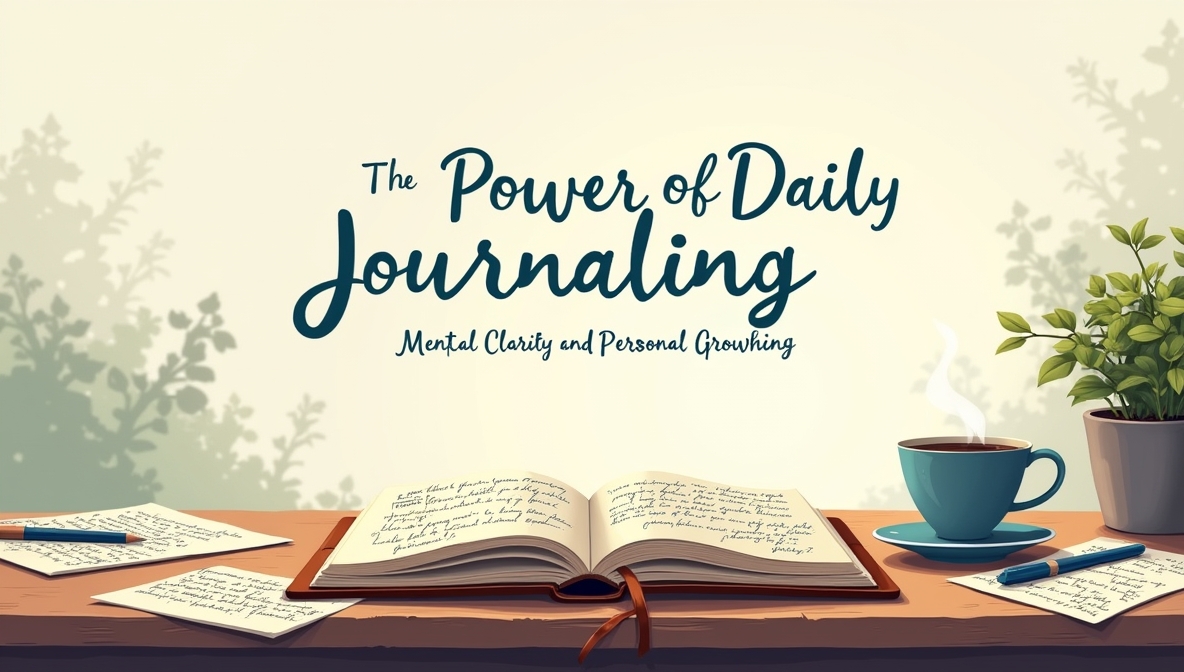In a world full of constant noise and distractions, finding time to reflect has become more important than ever. One simple yet powerful tool that many successful people swear by is journaling. Writing down your thoughts, ideas, and emotions each day can help clear your mind, improve focus, and support personal growth.
Journaling is not just about keeping a diary. It’s a structured habit that allows you to understand your inner world better. It helps you make sense of your feelings, recognize patterns in your behavior, and set clear goals. Whether you’re dealing with stress, planning your future, or tracking your habits, a journal can serve as a powerful companion.
One major benefit of journaling is mental clarity. When your thoughts are spinning around in your head, it can be hard to focus or make decisions. Writing them down gives those thoughts a place to live outside your mind. You create space to reflect without judgment. This often leads to insights you wouldn’t have had otherwise. Many people say they feel lighter or more at peace after journaling, simply because they’ve let go of the mental clutter.
Another reason to keep a journal is stress management. Life is full of unexpected challenges, and journaling can help you process those emotions in a healthy way. Instead of reacting impulsively, you give yourself time to think through your response. This can lead to better emotional control and more thoughtful communication with others. Studies have even shown that expressive writing can reduce symptoms of anxiety and depression.
Goal setting is also more effective when you write things down. When you put your goals into words, they become more real and actionable. You can track your progress, celebrate wins, and adjust your approach when needed. Over time, your journal becomes a record of your growth. You can look back and see how far you’ve come, which builds confidence and motivation.
One simple way to start journaling is the “morning pages” method. Each morning, take 10 to 15 minutes to write freely about whatever’s on your mind. Don’t worry about grammar or spelling. The goal is to get your thoughts flowing. Another option is a gratitude journal, where you list a few things you’re thankful for each day. This small habit can shift your mindset and improve your overall mood.
You can also use prompts to guide your writing. Questions like “What did I learn today?”, “What am I struggling with?”, or “What do I want to focus on tomorrow?” can give your journal structure and purpose. There’s no right or wrong way to journal—what matters is consistency and honesty.
If writing by hand feels slow, try using a digital journal or a note-taking app. The format doesn’t matter as much as the habit itself. The key is to make journaling a regular part of your routine. Set aside time each day, even if it’s just five minutes. Over time, you’ll begin to notice the benefits in your mental clarity, emotional balance, and sense of purpose.
Journaling is a small act with a big impact. It doesn’t require expensive tools or special training. All you need is a notebook, a pen, and a few quiet minutes each day. In return, you’ll gain a clearer mind, a deeper understanding of yourself, and a stronger sense of direction in life.

